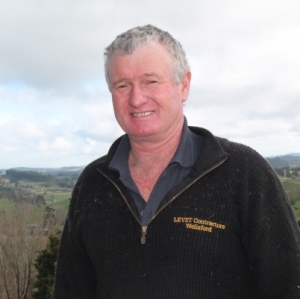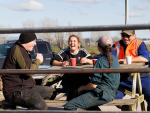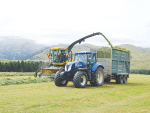Rural Contractors New Zealand is questioning why recent changes to immigration rules do not take into account similar requests from the rural contracting sector.
RCNZ President, Steve Levet agrees with the move made by Immigration Minister Michael Woodhouse for a new streamlined visa process.
The change, which remain in place from now until June 2015, will allow Queenstown employers to be temporarily exempt from providing evidence of recruitment attempts within New Zealand – except for roles that Work and Income has identified it may be able to fill.
However, Levet suggests a similar scheme is also badly needed in the rural contracting sector.
"There is no doubt the tourism sector is an important and valuable part of New Zealand's economy and the Government is right to make provisions for that sector," he says.
"However, we need similar provisions for the rural contracting sector as there is a gap between rural contractors' needs for trained and experienced agricultural machinery operators, and unemployed New Zealanders who can do this work."
Levet believes the rules around employing temporary, skilled people from overseas prepared to work for 6-8 months each year need to be simplified as do the regulations restricting people who have worked here in past seasons, coming back to New Zealand to work.
"Contracting is a seasonal business and one that uses sophisticated machinery that requires technical skill to operate productively," he adds. "Part of this shortfall is met by bringing in skilled operators from overseas."
Levet says despite many attempts made by RCNZ to advocate similar ideas for the rural contracting sector such as the recent tourism initiative, the Government still fails to acknowledge or understand the issue.
"A dire shortage of suitable agricultural machinery operators means rural contractors rely on employing skilled people from overseas on a temporary basis each season and have done so for many years," he explains.
"Unfortunately, many of the applicants Work and Income NZ (WINZ) tries to fill these vacancies with; either do not have the right skill-set and/or attitude to be successful."
"We are talking about operating highly technical and very expensive pieces machinery. It is unrealistic, unsafe, and impractical to expect unemployed people to walk off the street and successfully take up these positions."
"The seasonal nature of rural contracting means workers with the right skills are only needed for a few months each year and we need a similar exemption and streamlined immigration process."
Levet says RCNZ will continue to lobby for changes governing rules for overseas seasonal workers in the rural contracting sector.


















